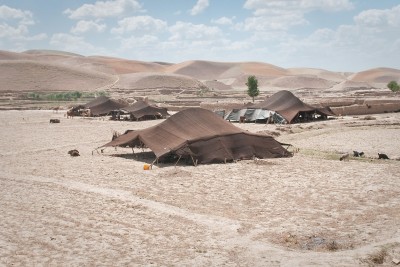Afghanistan Receives Humanitarian Aid from Austria
Aid organizations in Afghanistan and the surrounding region will receive seven million euros from the Foreign Disaster Fund (AKF) to alleviate the acute humanitarian emergency of Afghan civilians. In this way, internally displaced persons and Afghan refugees will receive effective assistance close to home, thereby preventing cross-regional migration to Europe.
 In Afghanistan, 24.5 million people are currently dependent on humanitarian aid, including almost 13 million children. / Picture: © Wikimedia Commons / Petty Officer 1st Class Mark O'Donald (U.S. Armed Forces), Public domain
In Afghanistan, 24.5 million people are currently dependent on humanitarian aid, including almost 13 million children. / Picture: © Wikimedia Commons / Petty Officer 1st Class Mark O'Donald (U.S. Armed Forces), Public domain
The Afghan population is suffering. After the devastating earthquake, there is an urgent need for humanitarian aid. To alleviate the current emergency, the Federal Government is supporting aid organisations on the ground with payments from the Foreign Disaster Fund.
To this end, the Federal Government is making seven million euros available from the Foreign Disaster Fund (AKF) for aid organisations in Afghanistan and the surrounding region.
This ensures effective assistance for internally displaced persons and Afghan refugees close to home and contributes to preventing cross-regional migration movements to Europe.The aid money is handed over directly to the aid organisations.
This measure is necessary to prevent misuse by the Taliban regime and thus not to indirectly support the reign of terror. In this context, the Office of the United Nations High Commissioner for Refugees (UNHCR) will receive four million euros, the International Federation of Red Cross and Red Crescent Societies (IFRC) one million euros and Austrian aid organisations in Afghanistan two million euros.
"We are working with internationally renowned partners and several Austrian aid organisations to provide effective assistance on the ground. Through their deployment and expertise, we provide support where it is most urgently needed. At the same time, we prevent people from embarking on the dangerous journey towards Europe and traffickers from profiting from their suffering," says Federal Chancellor Karl Nehammer.
The decades-long armed conflict, the effects of COVID-19, which brought the country to an economic standstill, as well as the global food crisis caused by the Russian war of aggression have severely affected the civilian population in Afghanistan.
The devastating earthquake of 22 June 2022 has further exacerbated the humanitarian crisis in the country. According to initial reports, the quake claimed over 1,000 lives. It is feared that the number will continue to rise.
"The situation in Afghanistan is devastating. Several crises are multiplying the hardship. In addition to war, pandemic, hunger and flight from a dictatorial regime, an earthquake has now claimed numerous lives and deprived many people of their homes.It is crystal clear: we must not forget the people in Afghanistan. We must contribute to the more than necessary humanitarian aid in Afghanistan. With the disbursement from the increased Foreign Disaster Fund, it is possible to support experienced international organisations and Austrian NGOs in their vital work in Afghanistan," said Vice Chancellor Werner Kogler.
In Afghanistan, 24.5 million people are currently dependent on humanitarian aid, including almost 13 million children. In addition, 19 million Afghans are facing an acute food crisis. Recent events are exacerbating the situation, especially for women and girls, who suffer from insufficient access to essential life-saving measures and lack of protection from violence.
"Those who help quickly help twice. This is exactly what Austria is doing, and is not leaving Afghanistan in the lurch after the earthquake with more than 1,000 dead. More than ever, the people in Afghanistan need our help now. We must prevent a humanitarian collapse in order to avoid a spillover into the region. Otherwise, there is a threat of even more illegal migration towards the European borders," said Foreign Minister Alexander Schallenberg.
UNHCR is on the ground in Afghanistan to provide life-saving emergency assistance to internally displaced persons and refugees in the neighbouring region, as well as assistance in combating sexual violence.
The International Federation of Red Cross and Red Crescent Societies (IFRC) has been active in Afghanistan for over 30 years and has many years of experience in providing life-saving emergency aid to the population affected by natural disasters such as earthquakes.
In keeping with its humanitarian tradition and in view of the dramatic situation in Afghanistan and the region, Austria supports the humanitarian efforts of the international community.
BMEIA Federal Ministry for Europe Integration and Foreign Affairs



